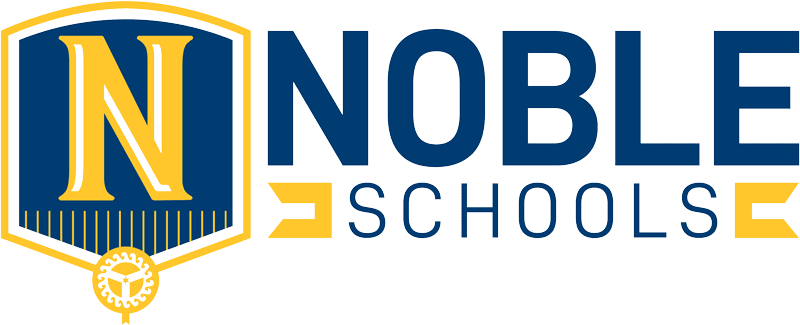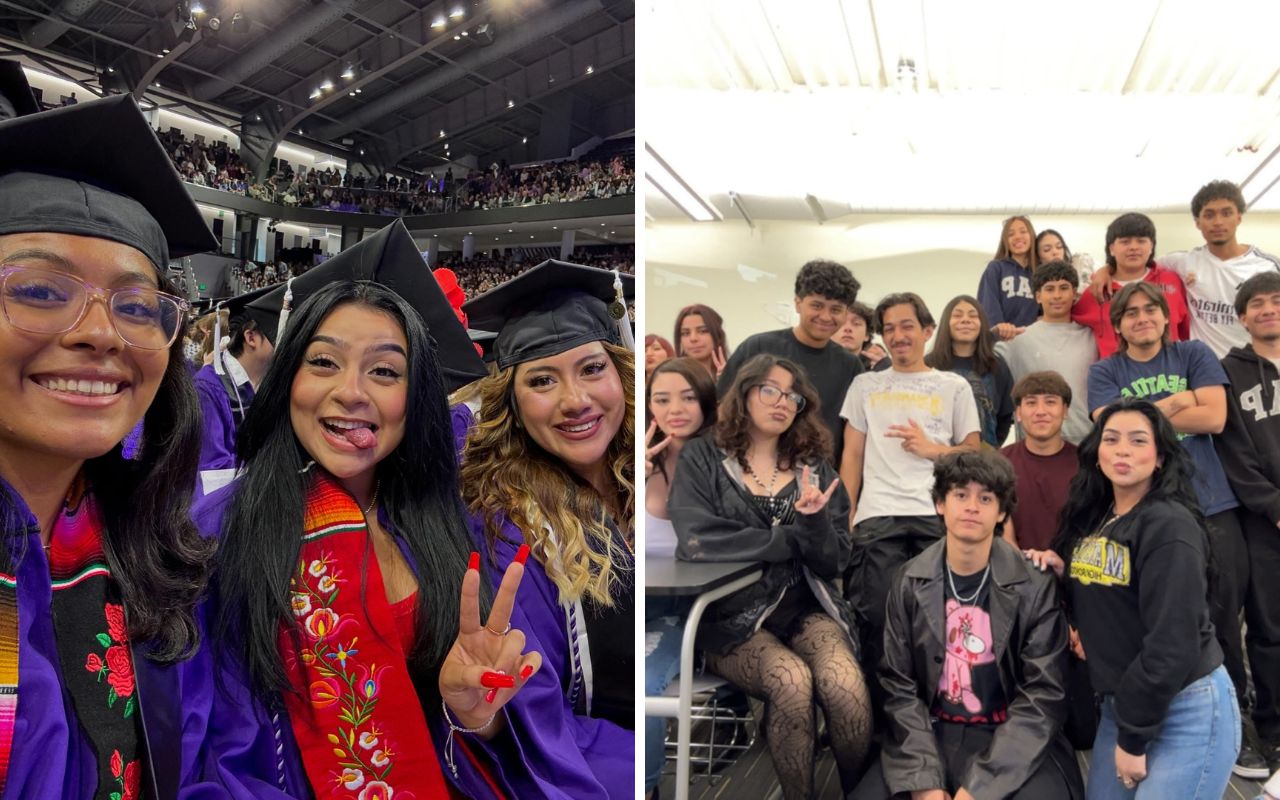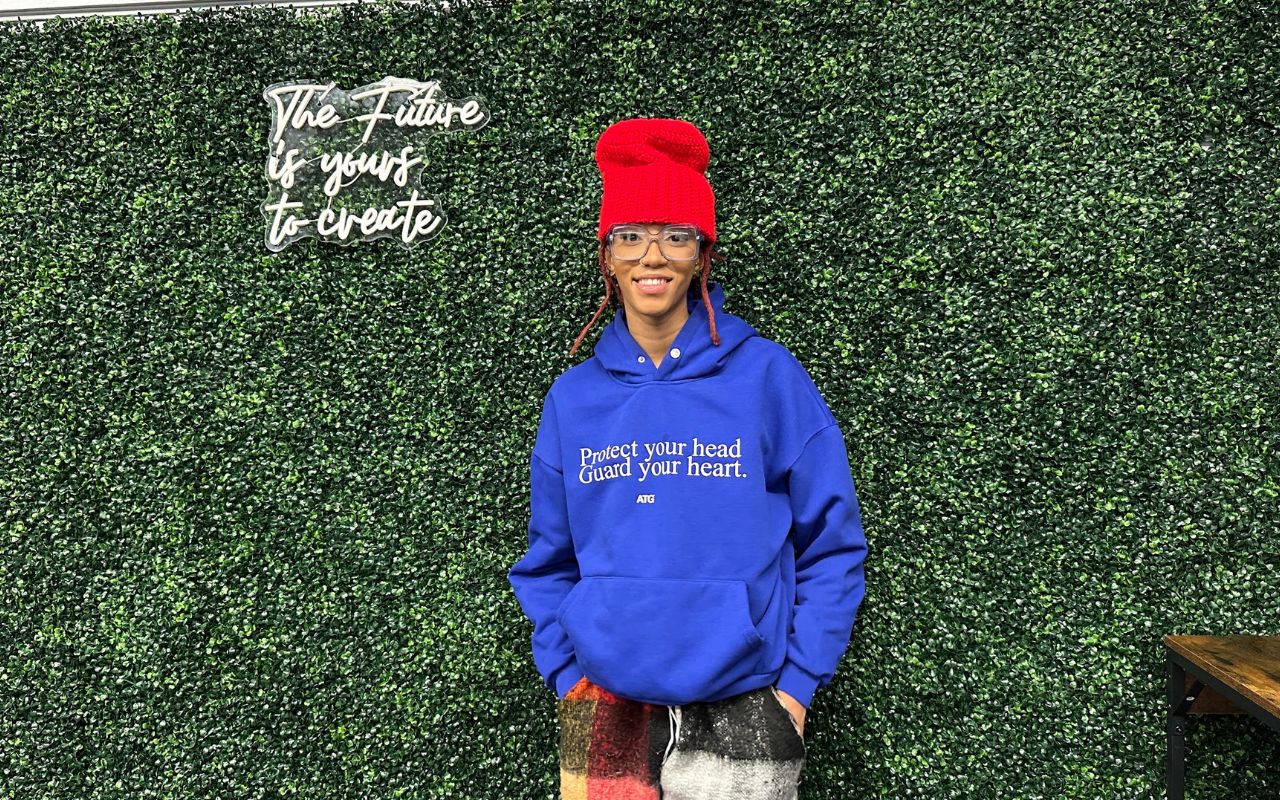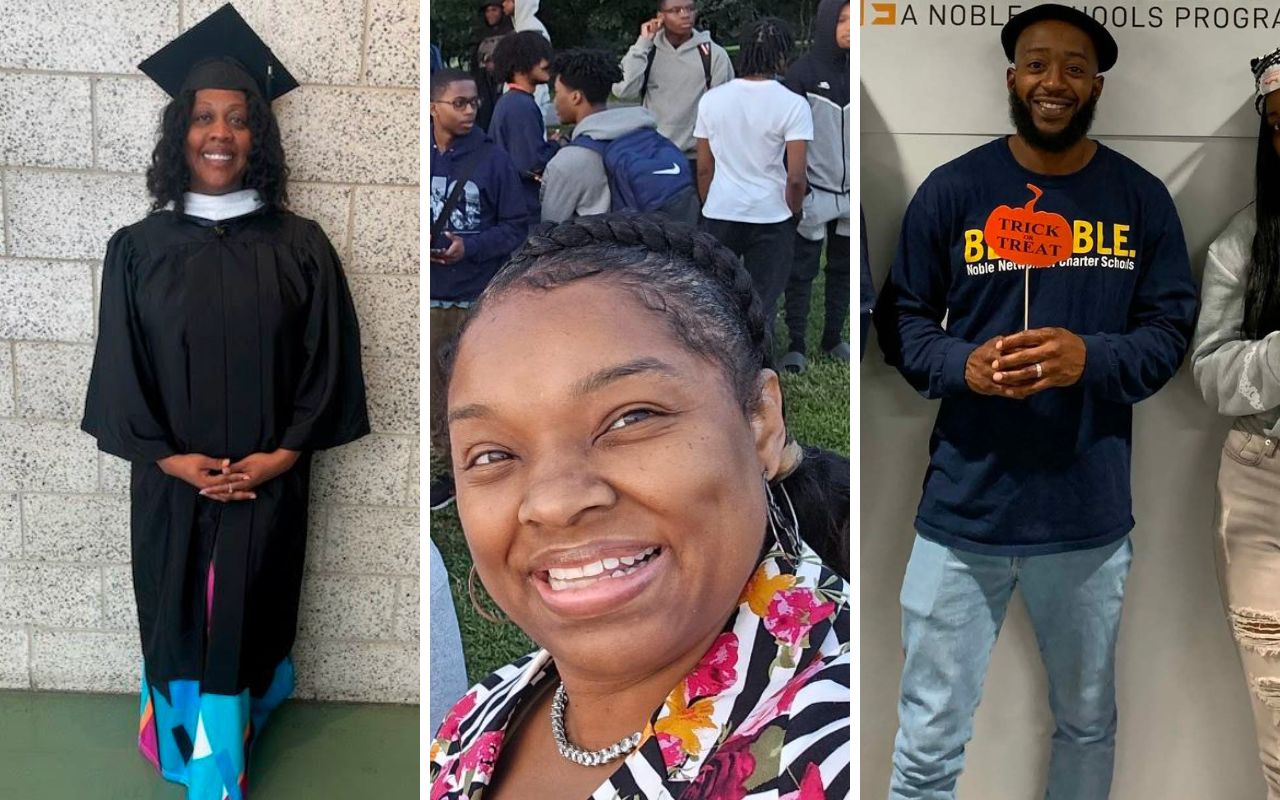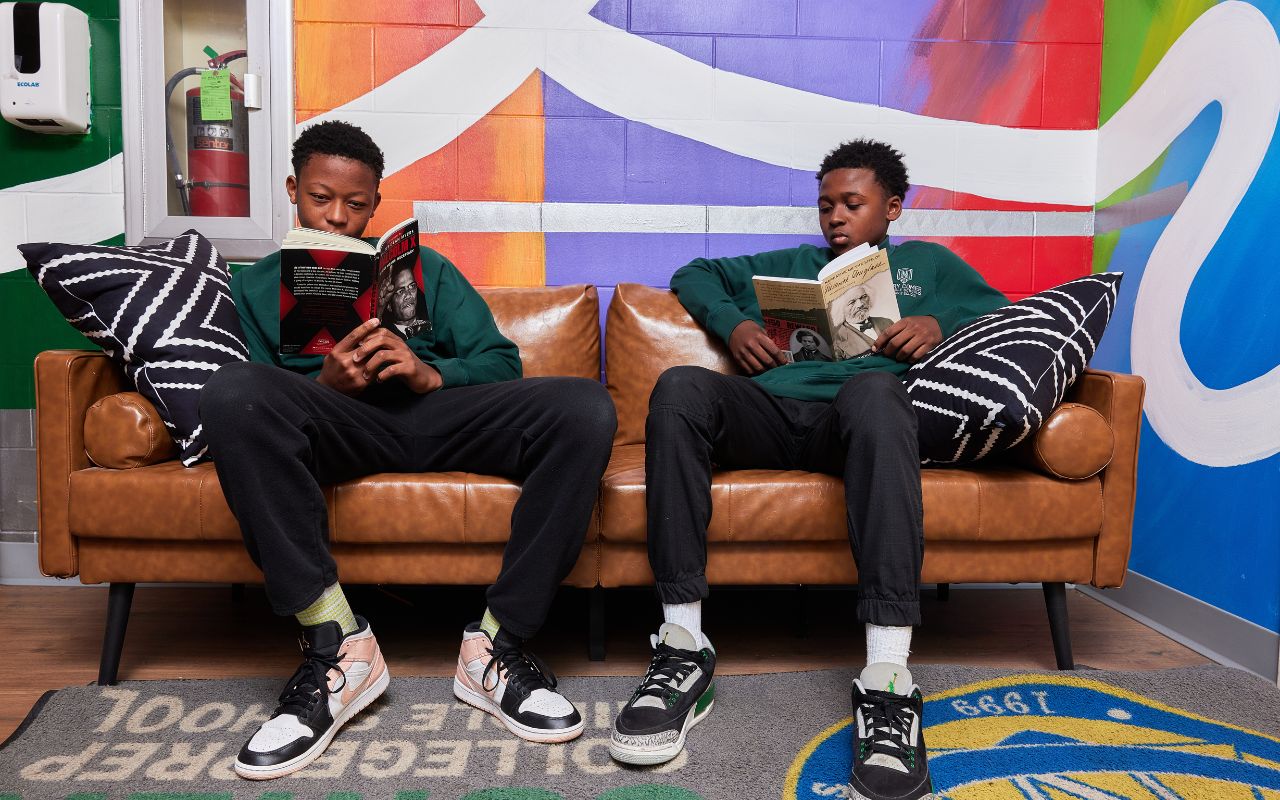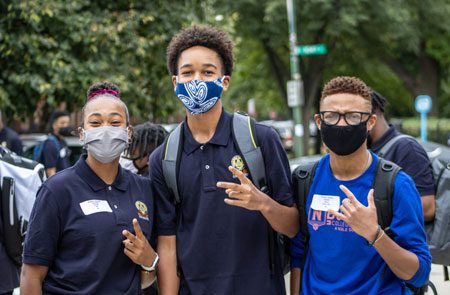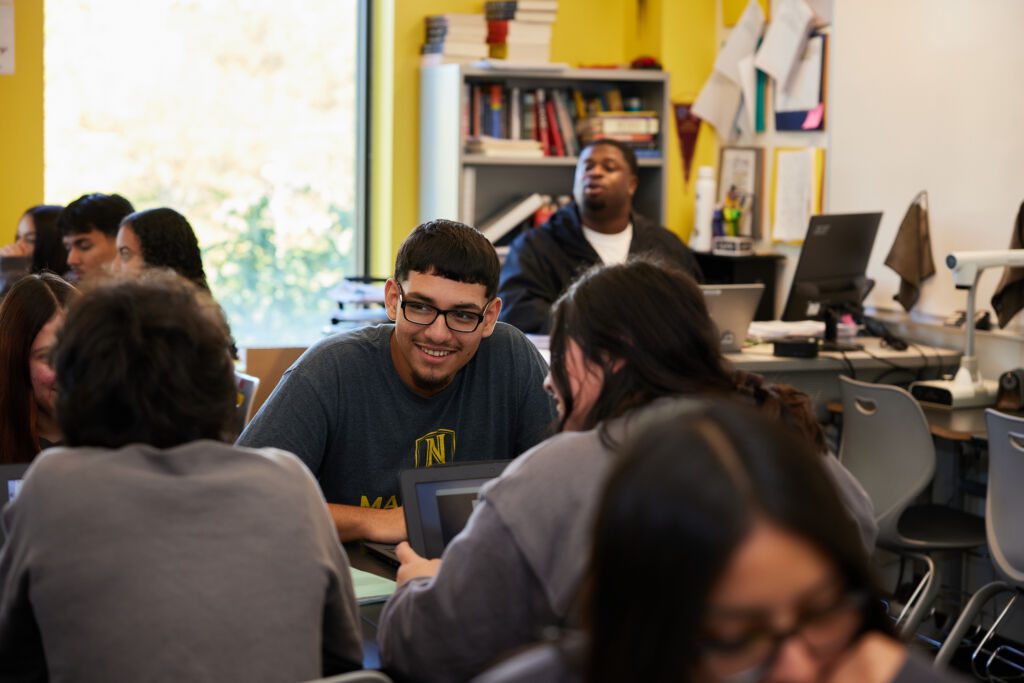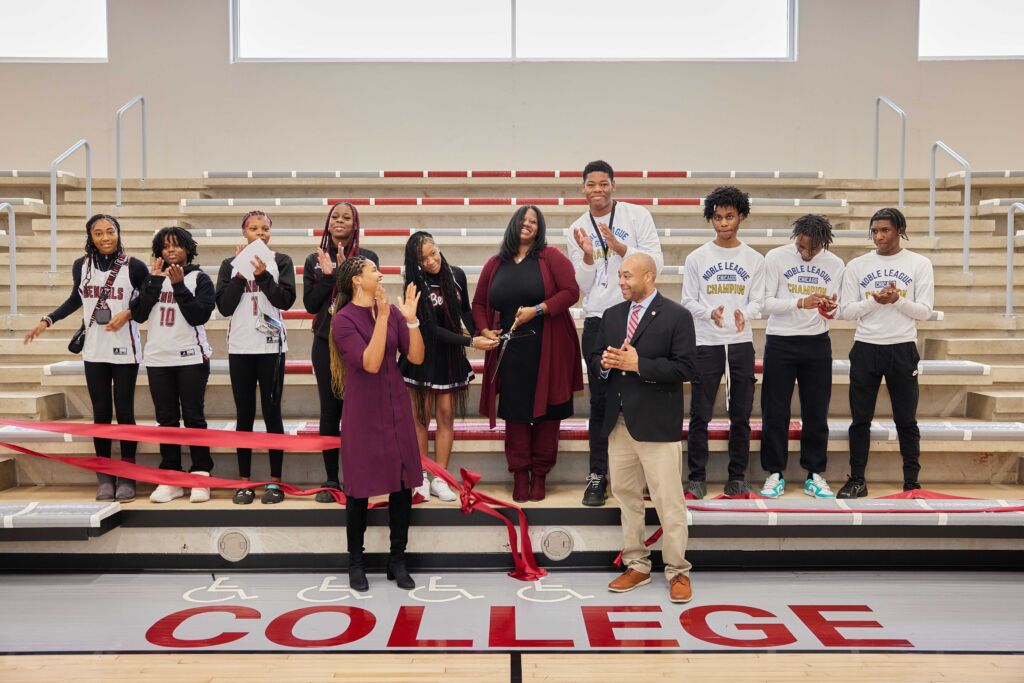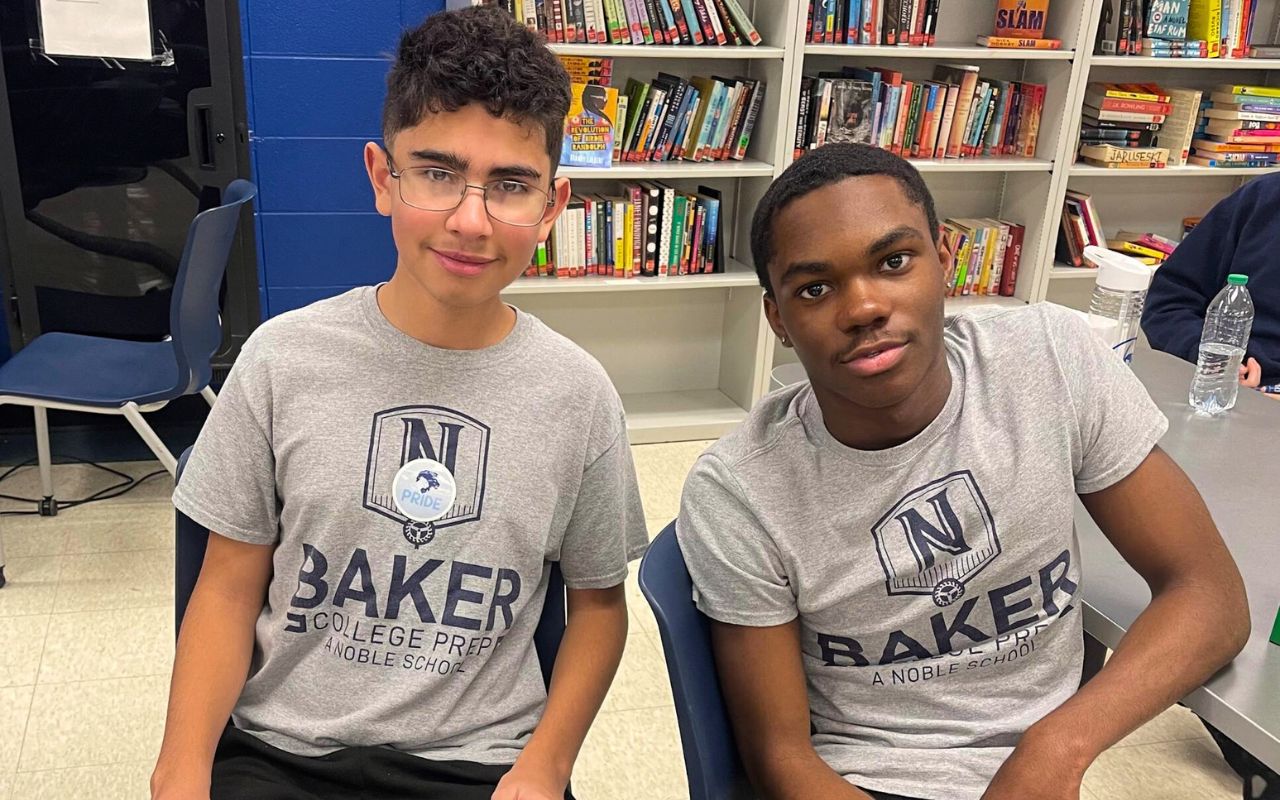
9th grade is often one of the toughest years for high school students. The transition from middle school to high school is rough, and research shows it. GPAs tend to decrease significantly from 8th grade to 9th grade, and 9th-grade students often experience increased depressive symptoms, loneliness, and other mental health struggles.
Success in your first year, though, is one of the greatest predictors for succeeding in school later. Good attendance and academic achievement in 9th grade is often linked to high school graduation and college readiness. This makes it incredibly important to ensure our 9th graders have a smooth transition into their freshman year.
At Baker College Prep, staff created a peer mentoring program to help freshmen with the transition—Lion’s Pride Mentoring. If you walked into Baker’s student center, you would see upperclassmen teaching social-emotional lessons, fostering relationships, and mentoring lowerclassmen—all part of the Lion’s Pride program.
How it all started and what it is…
In the mid-2010s, a former assistant principal at Baker wanted to address some of the high school transition challenges for 9th graders. At the same time, they were also seeing that upperclassmen felt disempowered as leaders in the building. They founded Lion’s Pride Mentoring in 2017 to help Baker freshmen navigate the high school environment and cultivate strong student leaders who would make a positive impact at Baker and in their communities after graduation.
Lion’s Pride expanded past Baker’s walls in 2018 and became its own 501(c)(3) organization in 2019. In 2021, Lion’s Pride was selected as a finalist in the Chicago Design Challenge and expanded to five more schools. The organization now serves eight Noble campuses and one non-Noble high school.
Lion’s Pride Mentoring utilizes peer-to-peer mentoring—connecting younger students to mentors just like them—to both cultivate student leaders and help freshmen with the tough transition to high school. The power of peer-to-peer mentorship is immense. For students, having a mentor who can not only give them advice but also relate to their experiences is essential to creating a supportive space where the mentees can trust that they will get relevant help.
In the program, Lion’s Pride staff train high-achieving 11th- and 12th-grade students to mentor 9th graders. The mentors—often called “Bigs”—then help 9th graders, or “Littles”, in a variety of ways—from teaching social-emotional lessons to meeting with their Littles on a weekly basis.
Here’s how it’s been going…
The staff at Baker have seen some amazing outcomes from the program.
“Lion’s Pride not only leads to a more positive experience and stronger outcomes for our Littles, but also significantly accelerates the leadership skills of our Bigs,” Mary Arrigo, principal of Baker College Prep, said.
While the mission has remained the same, the program has changed and evolved over the years into the robust program it is today. Here’s how it works:
In May of the previous school year, Bigs are chosen through an intense process that involves essays, interviews, GPA requirements, and teacher recommendations. Once the Bigs are selected, they go through a four-week training to learn the essentials of mentoring. Most upperclassmen have never mentored before, so this training is essential to the success of Lion’s Pride.
Throughout the training, Bigs learn key skills surrounding these main points:
- The Lion’s Pride mentoring vision and what makes a mentor
- What does a mentor look like?
- What do mentors say to their mentees?
- How do you measure high-quality mentoring?
Once the school year starts, Bigs are placed with a Little and the mentoring begins. Throughout the year, Bigs are placed into multiple types of leadership roles. One of their responsibilities is to teach SEL lessons to the whole group of Littles.
Roberta R-G., an 11th grade mentor and Baker College Prep student, gave a 60-minute presentation on love languages.
“It felt really good because I was able to step out of my comfort zone and the lesson helped me to understand my Little better and my peers more,” Roberta said.
Bigs are also required to help Littles analyze their GPA, attendance, and behavior each week and assist them in their highest area of need. Sometimes tutoring and helping with homework will take place, while other days it may be a conversation and reflection over behavior. It can even be strategizing on how to get to school on time to lower their tardy count.
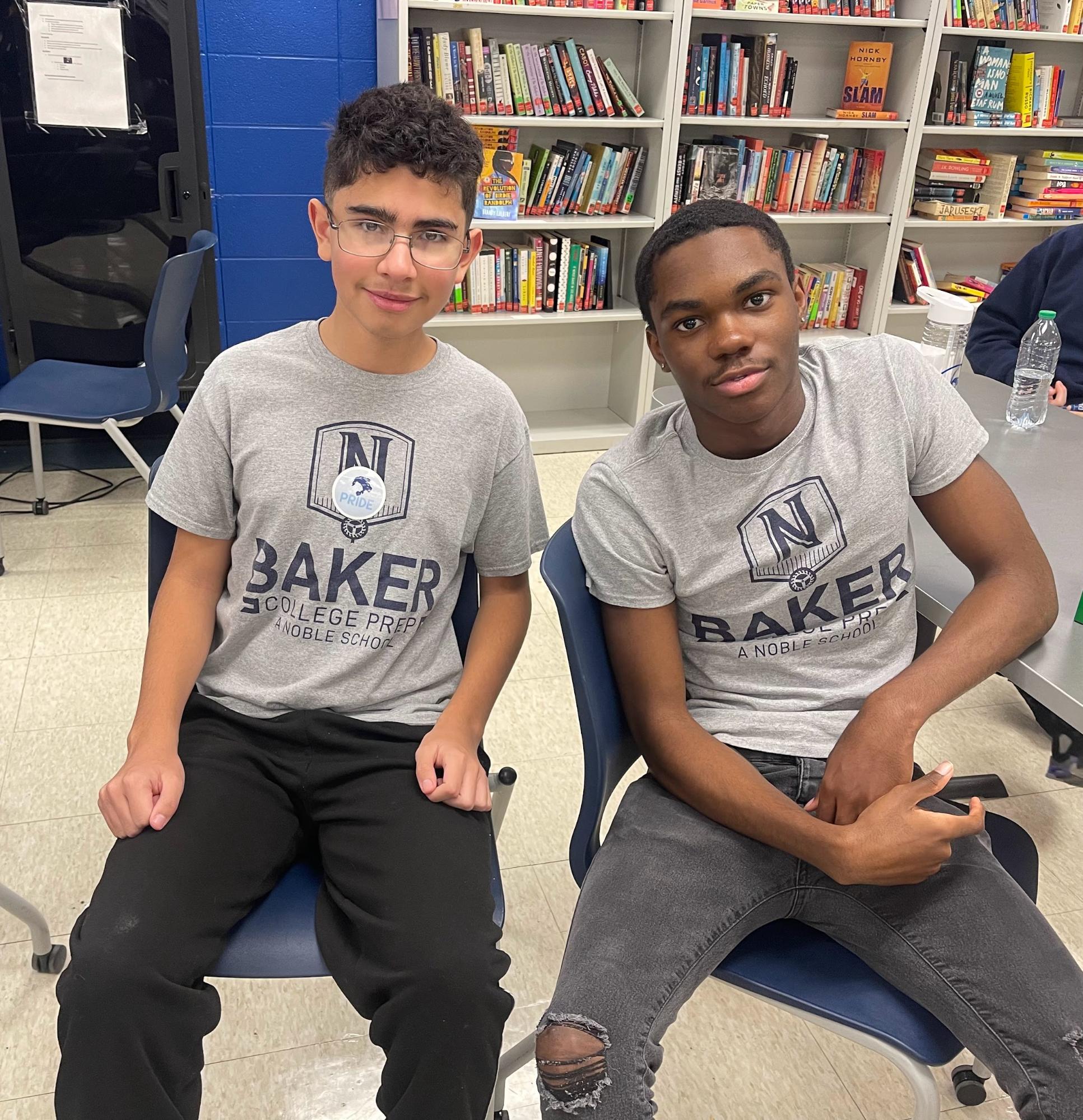
Zayden P. (left), a freshman and Little, and his Big, Tavin M. (right), have both gained a lot from the Lion's Pride Mentoring program.
Tavin M., a Baker junior and Big, often helps his Little, Zayden P., with his homework, especially English and math. Tavin helps edit his sentences before he turns in short answer responses or longer paragraph assignments. He has also helped Zayden gain confidence in his spelling ability.
“I like having him as a Little because he is willing to listen and learn. He wants to do better in school, and I like being able to help him. I like helping others and learning how to mentor,” Tavin said.
Overall, Tavin has made sure to encourage and uplift Zayden, which has been a huge confidence boost for the 9th grader. Zayden appreciates Tavin’s openness and kindness.
“He makes me feel confident to ask questions. When I am stuck on something, he is there to help me,” Zayden said.
These wins may seem small, but they make such a difference to both the Little and the Big. The differences are not just seen within peer mentoring sessions—they translate to the rest of the school community as well, and sometimes, even past the high school.
Anyia Collins, assistant dean of students at Baker and one of the Lion’s Pride facilitators, has seen the impact of Lion’s Pride spread through the hallways.
“Lion’s Pride sparks connections between upper and lowerclassmen, both inside and outside of the classroom. It gives our scholars a way to interact with one another in a way they typically wouldn’t have,” Collins said.
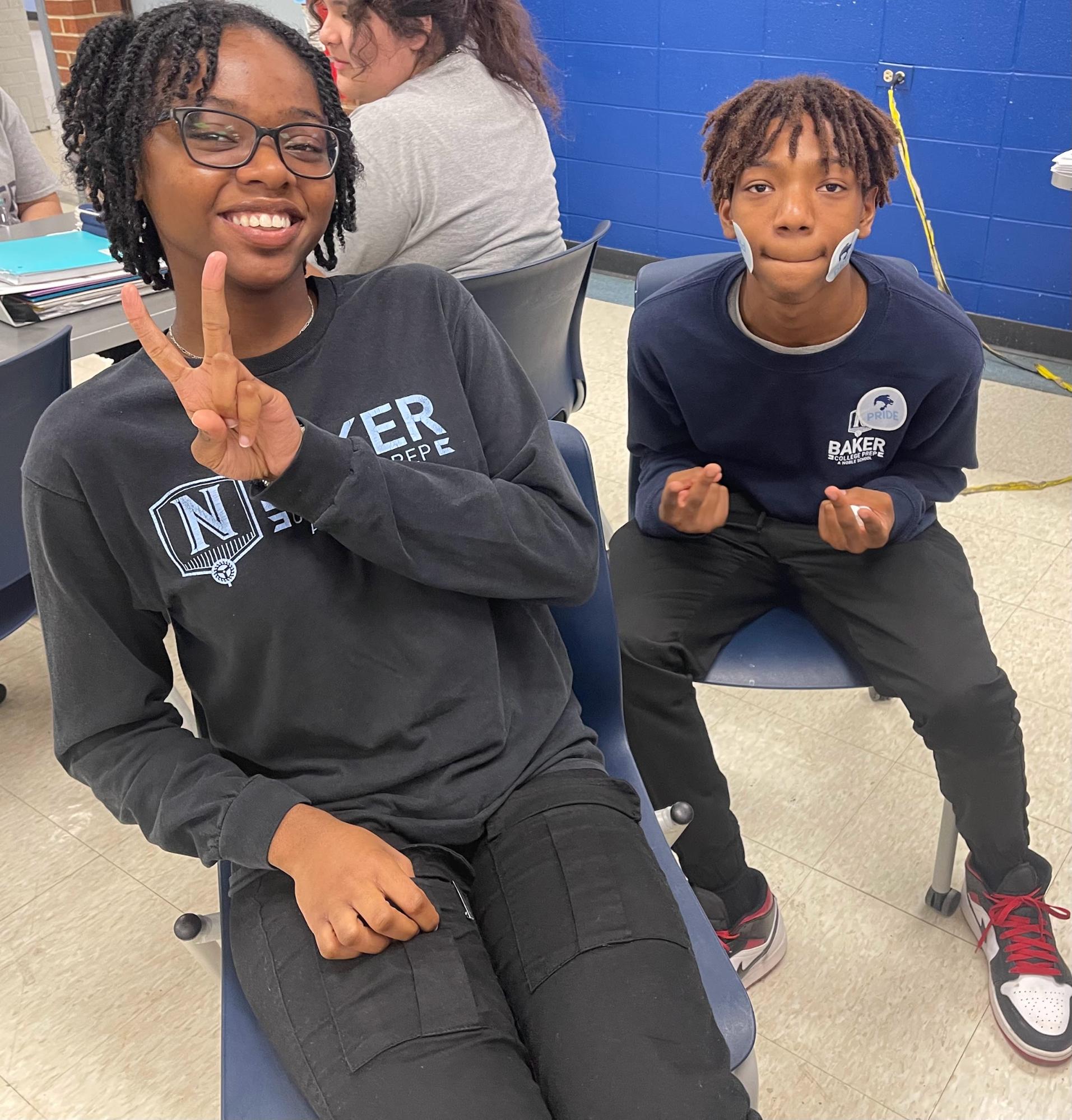
Tykaha T. (left), a junior at Baker, and Tony W. (right), a freshman at Baker, chose one another as mentor and mentee through a speed friendship activity.
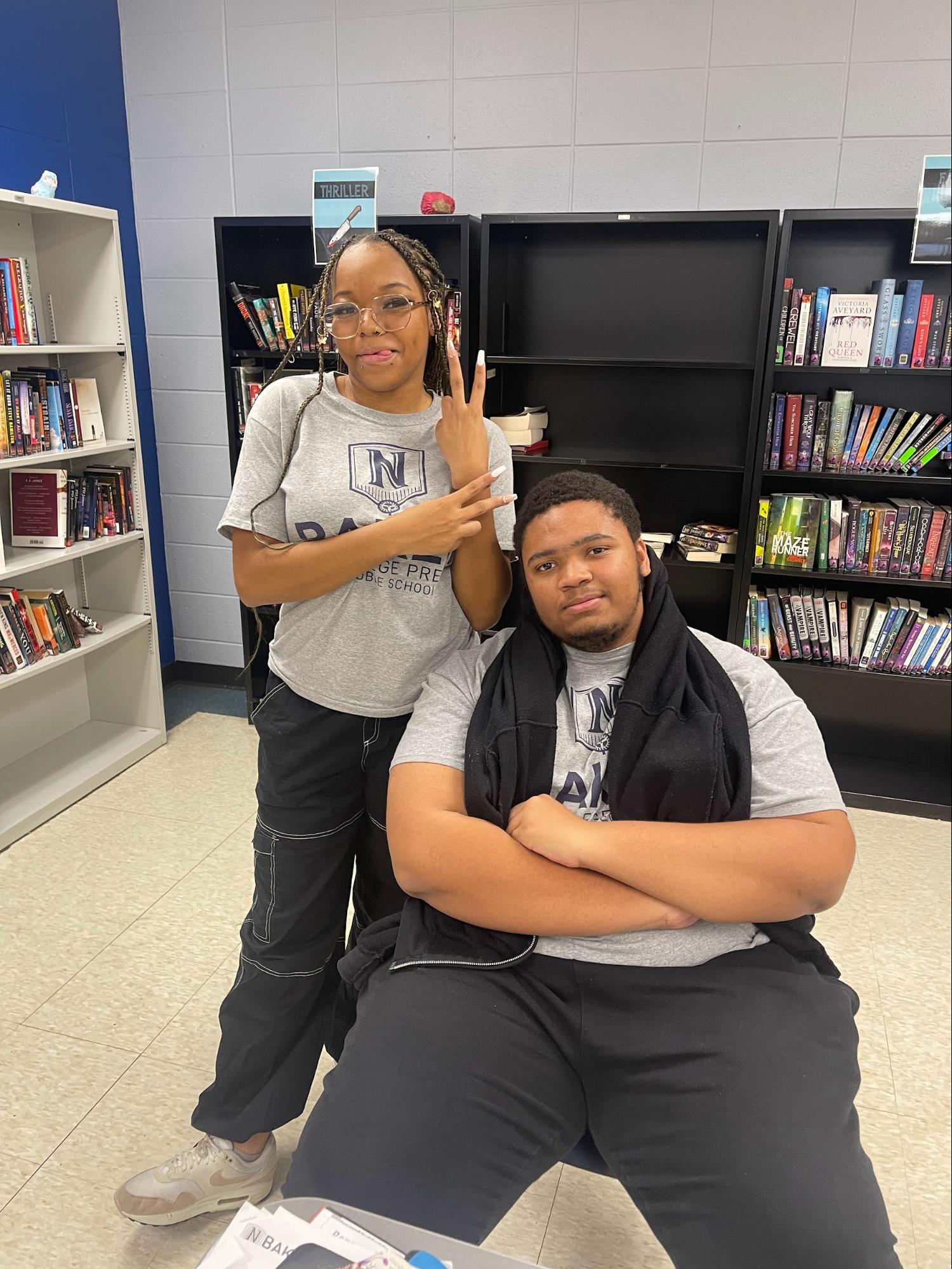
Antynece W. (left), a senior at Baker, and Bryan W. (right), a freshman at Baker, posing for a picture after the Big and Little reveal luncheon.
The staff at Lion’s Pride also continuously see Baker students involved in the program coming back. Littles often become Bigs when they reach 11th and 12th grade, and alumni of the program come back to intern at Lion’s Pride and participate in Baker alumni programming.
“The continued engagement with students from our program has been a favorite part of my job,” Jasmine Glistrap Hunter, CEO of Lion’s Pride Mentoring, said, “I enjoy seeing the growth and development of our students at different stages in their lives. I feel honored to be able to see them become young adults who continue to showcase the skills they developed as part of our program.”
Where Lion’s Pride Mentoring is going next…
Lion’s Pride Mentoring will continue to grow and adapt to what our students need, whether it is more support in tutoring, leadership, or simply attending school.
“As the program continues to evolve, I would love to see us focus the programming more on our Littles’ school attendance, as we know that attendance at the 9th-grade level is a huge predictor of success in high school and ultimately in college matriculation,” Principal Arrigo said. She also hopes that more Littles continue to step into the role of Bigs and become school leaders.
Anturnett L., a Baker senior and second-year Big, appreciates the program a lot and hopes to see it keep going.
“It has allowed me to gain friendships and a support system to lean on. I hope that others can also benefit from this community,” Anturnett said.
